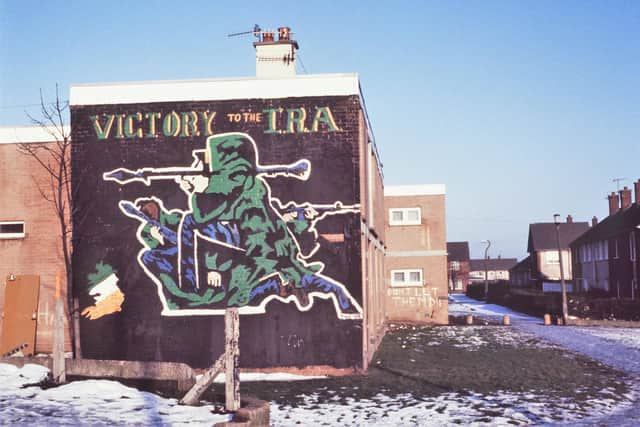Ulster Human Rights Watch voices fears that new ‘Troubles information recovery’ plan will let paramiitaries ‘peddle fanciful allegations’ against enemies without proof or fear of legal comeback


Axel Schmidt, advocacy manager for Ulster Human Rights Watch, said his concern is that there will be no reasonable standard of proof against which claims can be tested.
The result? People will be able to concoct “fanciful” tales about their enemies without the need for evidence, or risk of legal comeback.
Advertisement
Hide AdAdvertisement
Hide AdHe was reacting to news that the government has substantially re-written its plans for a Troubles legacy bill.
Last year, the government’s proposal was simply to end all Troubles prosecutions, inquests, and civil cases, for good.
In the face of a torrent of anger from victims’ groups and everyone from the TUV to Sinn Fein, these plans have been replaced by “earned immunity”.
Under the new proposals, unveiled on Tuesday, an Independent Commission for Reconciliation and Information is to be set up.
Advertisement
Hide AdAdvertisement
Hide AdOnce it is up and running, “individuals who cooperate with the new commission” will be “deemed to have earned their immunity” for any crimes that they confess to.
Sitting alongside this is a plan to establish an “oral history” of the Troubles, “to maximise public engagement with different narratives and Troubles-related stories”.
Mr Schmidt’s charity is based in Lurgan and was founded in 2002; he says it represents roughly 350 people.
Mr Schmidt noted that these new proposals are very similar to ones already put forward under 2014’s Stormont House Agreement – an agreement which basically fell into abeyance over time.
Advertisement
Hide AdAdvertisement
Hide AdHe questioned how anyone will be able to verify testimony from ex-paramilitaries, or their recollection of events for an oral history project.
It would amount to giving “former terrorists and sympathisers the opportunity to justify their abominable actions”.
Mr Schmidt told the News Letter: “How can you have the assurance that what you’re being told is the truth?
“You need to have a process to test the evidence. The only way you can have the test is by proper legal process.”
Advertisement
Hide AdAdvertisement
Hide AdHe recalled that under the 2014 proposals “consideration [would be] given to protecting contributors from defamation claims”, adding: “I say that’s extremely dangerous.
“We don’t need any kind of new legislation that’s going to open the door for anybody to come along and tell all kinds of stories that may be fanciful...
“We can’t make progress if we continue to peddle allegations without a means to test what’s being said.”
Under the 2014 proposals, an information retrieval commission would be modelled on the Independent Commission on the Location of Victims’ Remains.
Advertisement
Hide AdAdvertisement
Hide AdThish has been largely successful at finding the IRA’s “disappeared”.
But Mr Schmidt said in that case information was proven correct whenever it led to a body, and incorrect when it didn’t – and you cannot “apply the same process” to information where there is no such corroborating evidence.
More from this reporter:
Advertisement
Hide AdAdvertisement
Hide Ad